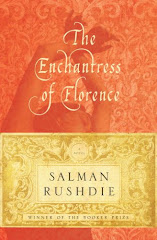
Donald Hipster-Doofus here. Basically, I think that this essay is really good. It's by Christina Nehring (and to answer your question: no, I've checked, she isn't a character in a Wagner opera, for those of you who like opera jokes). It's about how essayists have lately become big wimps, and how that has made essay writing in America completely uninteresting. Here's an excerpt, from somewhere in the middle:
The problem, of course, is not merely our essayists; it’s our culture. We have grown terribly—if somewhat hypocritically—weary of larger truths. The smarter and more intellectual we count ourselves, the more adamantly we insist that there is no such thing as truth, no such thing as general human experience, that everything is plural and relative and therefore undiscussable. Of course, everything is plural, everything is arguable, and there are limits to what we can know about other persons, other cultures, other genders. But there is also a limit to such humility; there is a point at which it becomes narcissism of a most myopic sort, a simple excuse to talk only about one’s own case, only about one’s own small area of specialization. Montaigne thought it the essayist’s duty to cross boundaries, to write not as a specialist (even in himself) but as a generalist, to speak out of turn, to assume, to presume, to provoke. “Where I have least knowledge,” said the blithe Montaigne, “there do I use my judgment most readily.” And how salutary the result; how enjoyable to read—and to spar with—Montaigne’s by turns outrageous and incisive conclusions about humankind. That everything is arguable goes right to the heart of the matter.I'd argue that this is sort of the case of Contemporary American Fiction, and perhaps also Contemporary American Poetry, and maybe even Contemporary American Politics (at least on on the Left, though this is changing). Big Claims/Ideas/Opinions/Ambitions are associated with Big Stupidity... which is generally a fair assessment: things do tend to be far more complicated than, say, Karl Rove lets on. Invading and occupying Iraq, for instance, is now sort of universally acknowledged to have been a Big Stupid Idea, and needed to be thought through in a way way more nuanced manner. In itself this, however, doesn't mean a) that there aren't Big Ideas that are true or, more importantly, b) that posing nuanced rhetorical points in the guise of Big Ideas / Claims / Statements doesn't have some sort of big payoff, even if those Big Ideas are revised / undermined / deconstructed / found to be utterly false and stupid in the process.
But at least in that case you have people's attention... Gomez Addams is the most important American Intellectual of the 20th Century!

See? This claim is false (the most important American Intellectual of the 20th century is clearly Frasier Crane), but at least I have your attention.
And I'm actually sort of serious about Frasier--Frasier Crane was the Clinton-era image of what an intellectual is (snooty, effete, urban, bi-coastal, bi-curious (?), cheese-eating, nauseating, utterly horrible),
 an image turned against the Left by Rove and our Cowboy President in the 2000 and 2004 elections. Look, for instance, at this picture of Frasier pompously lecturing Eddie-the-Dog on the historical determinations of liberal bio-politics and how it caused Hilary Clinton's 1994 proposal for universal health care to self-destruct in the face of the slanderous attacks of Rush Limbaugh. Who would you side with in this debate: the pretentious and boring and weird-looking Frasier (the liberal intellectual), or the cute and likable Eddie-the-Dog (who is, by analogy, conservative)?
an image turned against the Left by Rove and our Cowboy President in the 2000 and 2004 elections. Look, for instance, at this picture of Frasier pompously lecturing Eddie-the-Dog on the historical determinations of liberal bio-politics and how it caused Hilary Clinton's 1994 proposal for universal health care to self-destruct in the face of the slanderous attacks of Rush Limbaugh. Who would you side with in this debate: the pretentious and boring and weird-looking Frasier (the liberal intellectual), or the cute and likable Eddie-the-Dog (who is, by analogy, conservative)?Is it any coincidence that Kelsey Grammer is Completely Conservative? Is it totally paranoid to think this? Is it utterly paranoid to have written an all-but-completed 722 page PhD dissertation applying the theoretical work of Giorgio Agamben, Jacques Rancière and Ernesto Laclau to Frasier, Seasons 3-6? But let's move on.
When Nehring says that everything is arguable, she is admitting that everything is rhetorical. It strikes me as odd when people (rightly or wrongly, from a scientific standpoint) apply the analogy of Heisenberg's Uncertainty Principle (that the act of measuring fundamentally alters what's being measured) to language and the things that human beings do in the world, and immediately retreat, as though what's being measured were something Sacred. Of course, sometimes that thing being measured IS sacred and worth preserving (e.g. a culture being prodded by anthropologists). But in a society like the U.S. where everything has always already been tampered with, things (the sorts of things you'd write an essay about) aren't sacred--they're determined by the manner in which we frame discussions around them.
That's why Nehring's essay is so great--because she pinpoints the fact that our discussions / analyses / narratives about most things are unbelievably timid and gentle and wimpy. I'd argue (hell, I AM arguing) that the indirect effect of this timidity is an unconscious reverence for the object being discussed.
And what is unexamined reverence for what exists if not Conservatism?
Seriously?





1 comment:
wherefore all the hating of Frasier? He wasn't so bad.
Post a Comment